
India is now one of the leading exporters of agricultural and processed food products in the world. Demand is continuously increasing for fruits, grains, vegetables, meat products, organic produce, and processed food items every year across the globe. APEDA with its support and assistance enables exporters to export such products to countries other than India. It grants recognition to exporters and assists them by providing various schemes for export promotion. For any exporter dealing in scheduled food products, it is necessary to obtain the APEDA Registration Cum Membership Certificate. It is also popularly known as an APEDA License.
The given article elaborates on the APEDA registration process, required documents, and benefits provided by an APEDA license. It also provides clarification with regard to the APEDA registration fee.
Why APEDA was launched by the Government of India
The Government of India has launched the APEDA under the APEDA Act, 1985 which was enforced w.e.f. February 1986. India was emerging as a big producer of agriculture and food products, but exports were low due to the lack of an organized support system, quality control mechanism, and global marketing.
APEDA is a body set up by the Government to regulate, promote, and develop the export of agricultural and processed food products, with a view to enhancing the Indian position in the global Agri-export market.
Objectives of APEDA
- Promotion and increase of agricultural exports from India
- The maintenance and improvement of quality standards for export products
- Diversify the range of export agricultural products and processed items
- Provide exporters with financial and technical support
- Strengthening international branding and marketing of Indian food products
- Development of export infrastructure comprising cold storage, pack houses, and supply chains
Overview of APEDA
- To enhance the share of India in the global Agri-export market
- To make Indian food products meet the quality requirements of the world market
- To assist farmers and exporters in improving their earnings through exports
- Increasing value addition and enhancing processed food exports
- Supporting rural development and employment through growth in Agri-exports
What is APEDA?
The Agricultural and Processed Food Products Export Development Authority is known by its acronym, APEDA. The APEDA Act of 1985 allowed the Indian government to create it. Promoting, developing, and regulating the export of scheduled agricultural and processed food products is the primary responsibility of APEDA.
To be eligible for a license, exporters of any of the APEDA-scheduled products must register with APEDA. The certificate in turn will act as proof that the exporter is approved and recognized for exportation of agricultural products.
Why is APEDA Registration necessary?
All business entities engaged in the export of products falling under APEDA schedule must get themselves registered with APEDA. This APEDA license is further required for availing government incentives, subsidies, and export development programmes, which otherwise exporters cannot claim in the absence of this license.
APEDA registration ensures:
- Legal status of a certified exporter
- Eligibility to receive financial support and schemes
- Participation in international trade fairs and buyer-seller meets
- Export promotion tools, training, and market intelligence reports by APEDA
Any non-compliance by APEDA in respect of prescribed fees, documentation, and application procedures may lead to the rejection or delay of one's export business.
Key Products Covered under APEDA
While exporting the Below products valid APEDA License is required:
- Fresh fruits and vegetables
- Basmati and non-basmati rice
- Meat and poultry products
- Dairy products
- Honey and jaggery
- Pickles, Papads, Masala products
- Bakery/confectionery products
- Groundnuts and peanuts
- Floriculture products
- Organic products, among many others
Therefore, any exporter dealing in such products has to go through APEDA registration along with paying the prescribed APEDA registration fees.
Benefits of APEDA Registration
Getting the APEDA license offers a number of advantages to exporters:
1. Export Recognition: Your firm is granted official status as a registered exporter.
2. Financial Assistance: Exporters can avail of the subsidies and promotional schemes under APEDA.
3. Market Development Support: APEDA organizes trade fairs, buyer-seller meets, and global exhibitions, which are available only to entities with valid APEDA registration.
4. Training & Guidance: APEDA undertakes capacity-building and skill development programs.
5. Brand Promotion: Assisting in packing, labeling, branding, and enhancing logistics.
It helps exporters to avail all these benefits with ease by knowing the APEDA registration fees and procedures.
Procedure for APEDA Registration Cum Membership Certificate
The procedure for Registration with APEDA is completely online it can be done through a few easy steps:
Step 1: Log on to APEDA Portal
Click on the registration section of APEDA through its website.
Step 2: Enter IEC Code
Every exporter must possess an Import Export Code. Your IEC shall serve as your user ID when applying for an APEDA license.
Step 3: Give Business Information
Business name, address, contact number, and email ID.
Step 4: Upload the required documents on portal
The following documents need to be uploaded in scanned form
Step 5: Pay the APEDA Registration Fees
You can pay online through net banking, UPI, card, or NEFT. Knowledge of the exact amount towards APEDA registration fees will save you from a delay or rejection of an application.
Step 6: Verification of Application
APEDA verifies your documents and ensures that the payment is made.
Step 7: Issue of APEDA License
The RCMC (APEDA Registration-cum-Membership Certificate) will be issued upon approval and can be downloaded from the portal.
The Validity of APEDA License is 5 years, To continue exporting after the license expires, an exporter must apply for renewal before the expiration date.
Documents Required for APEDA Registration
The exporters have to prepare the following documents for obtaining the APEDA license:
- Copy of IEC Certificate issued by DGFT
- Bank Certificate or Cancelled Cheque
- PAN Card of the business
- Copy of Company Registration Documents (GST, Partnership Deed, MOA, AOA, etc.)
- Business Address Proof
- (DSC) Digital Signature Certificate (optional but helpful)
The complete documents make the registration process of APEDA smooth and faster.
APEDA Registration Fees
First, understand the fee for APEDA registration. It is usually payable once at the time of application.
Presently, the registration fee for APEDA inclusive of GST is INR 5,900. APEDA registration fee includes the cost of registration as well as the issuance charge of the APEDA RCMC certificate.
Since this APEDA registration is in the form of a certificate and this certificate does not expire, this APEDA registration fees is one time, hence its highly cost-effective for exporters. Many exporters are confused about the renewal charges; however, once the APEDA license is granted, there is no annual renewal fee unless changes are made in the IEC details
In brief, the APEDA registration fees:
- Are paid during online application
- Non-refundable
- Include GST
- cover complete certificate issuance
- Are one-time, not recurring
How SKMC Global Can Help
You Get APEDA License Many businesses find going through government portals and understanding the requirements of documents quite cumbersome, and that is where SKMC Global plays an important role.
At SKMC Global, we offer end-to-end support for your APEDA registration:
- Eligibility and product classification
- Documents preparation and verification for avoidance of rejection
- The online submission of an application for APEDA license
- Payment of APEDA registration fees
- Follow-up till APEDA Registration Cum Membership Certificate is issued.
- Modification in APEDA details, if required later on.
Our experienced consultants ensure that you get your APEDA license in the most seamless manner.
Conclusion
APEDA Registration Cum Membership Certificate is required for those exporters who deal with agriculture and processed food items. It gives you legal status, access to all government schemes, training programs, and exposure to international trade. The APEDA registration process is easy, but it needs accuracy in documentation and the payment of the right fee for APEDA registration. Once issued, the APEDA license provides lifetime validity linked with your IEC, hence making this credential truly valued by an exporter.
If you are planning to start or expand your exporting business, obtaining the APEDA license should be your initial step. And with professional support from SKMC Global, this whole process will be efficient, hassle-free, and on time.
Recent Posts
-
 Union Budget 2026 updates...
Feb 02,2026
Union Budget 2026 updates...
Feb 02,2026
-
 SEBI’s New Co-Investment Framework for AIFs: An ...
Jan 14,2026
SEBI’s New Co-Investment Framework for AIFs: An ...
Jan 14,2026
-
 Incorporation of Company in Saudi Arabia...
Jan 05,2026
Incorporation of Company in Saudi Arabia...
Jan 05,2026
-
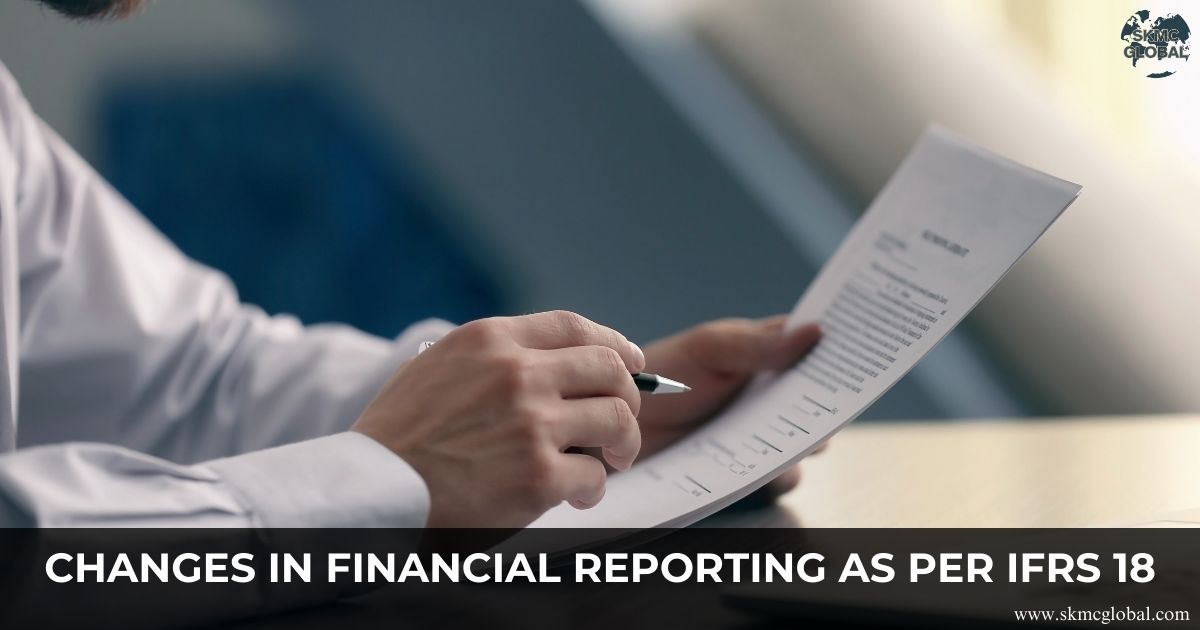 Changes in Financial Reporting as per IFRS 18...
Dec 31,2025
Changes in Financial Reporting as per IFRS 18...
Dec 31,2025
-
 Digital Personal Data Protection Act Implementatio...
Dec 30,2025
Digital Personal Data Protection Act Implementatio...
Dec 30,2025
-
 How to setup a Semiconductor Unit in Gujarat...
Dec 26,2025
How to setup a Semiconductor Unit in Gujarat...
Dec 26,2025
-
 Process of Setting Up a Gratuity Fund Trust in Ind...
Dec 18,2025
Process of Setting Up a Gratuity Fund Trust in Ind...
Dec 18,2025
-
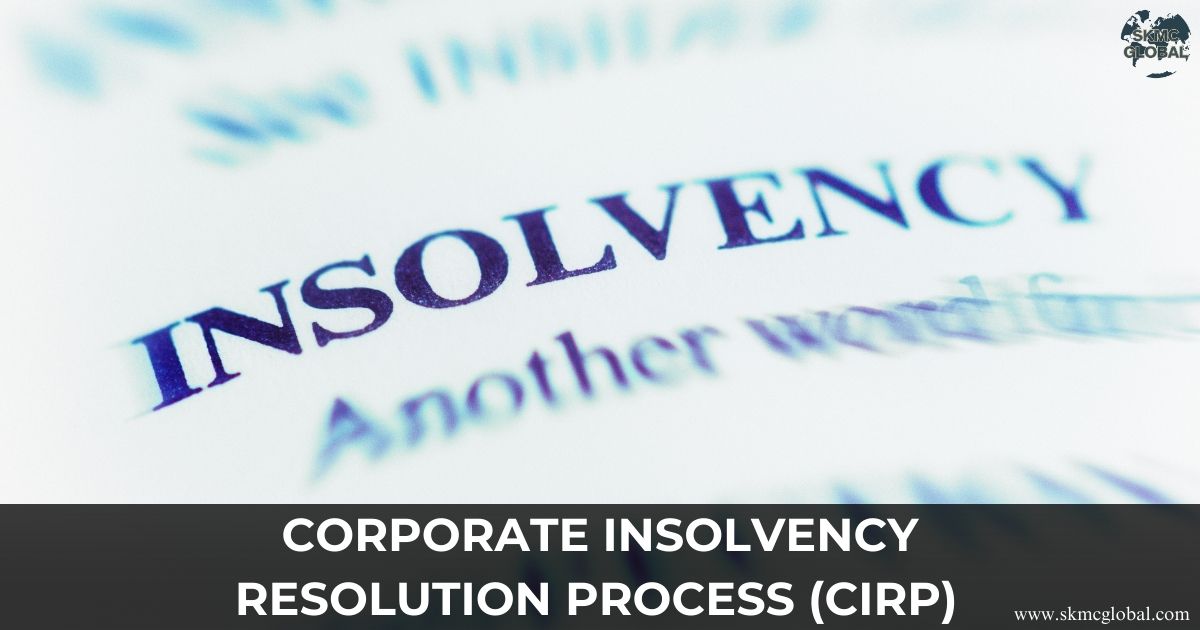 Corporate Insolvency Resolution Process (CIRP) und...
Dec 17,2025
Corporate Insolvency Resolution Process (CIRP) und...
Dec 17,2025
-
 Closure of a company in India...
Dec 12,2025
Closure of a company in India...
Dec 12,2025
-
 Importance of Black Money Act 2015...
Dec 11,2025
Importance of Black Money Act 2015...
Dec 11,2025
-
 What are undisclosed assets and income under Black...
Dec 08,2025
What are undisclosed assets and income under Black...
Dec 08,2025
-
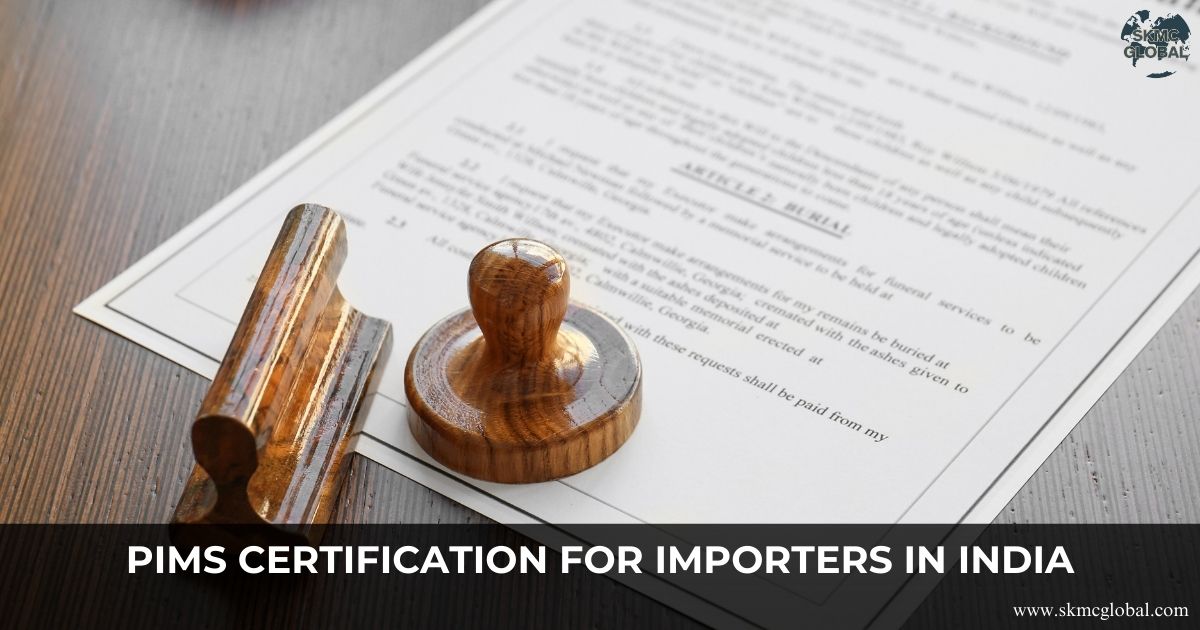 Importance of PIMS certification for Importers in ...
Dec 06,2025
Importance of PIMS certification for Importers in ...
Dec 06,2025
-
 Incorporation of Company in UAE...
Dec 03,2025
Incorporation of Company in UAE...
Dec 03,2025
-
 Legal Entity Identifier LEI - Purpose and Applicab...
Dec 01,2025
Legal Entity Identifier LEI - Purpose and Applicab...
Dec 01,2025
-
 Implementation of New Labour Codes 2025...
Nov 29,2025
Implementation of New Labour Codes 2025...
Nov 29,2025
-
 A Step-by-Step Guide to a Smooth Payroll Outsourci...
Nov 28,2025
A Step-by-Step Guide to a Smooth Payroll Outsourci...
Nov 28,2025
-
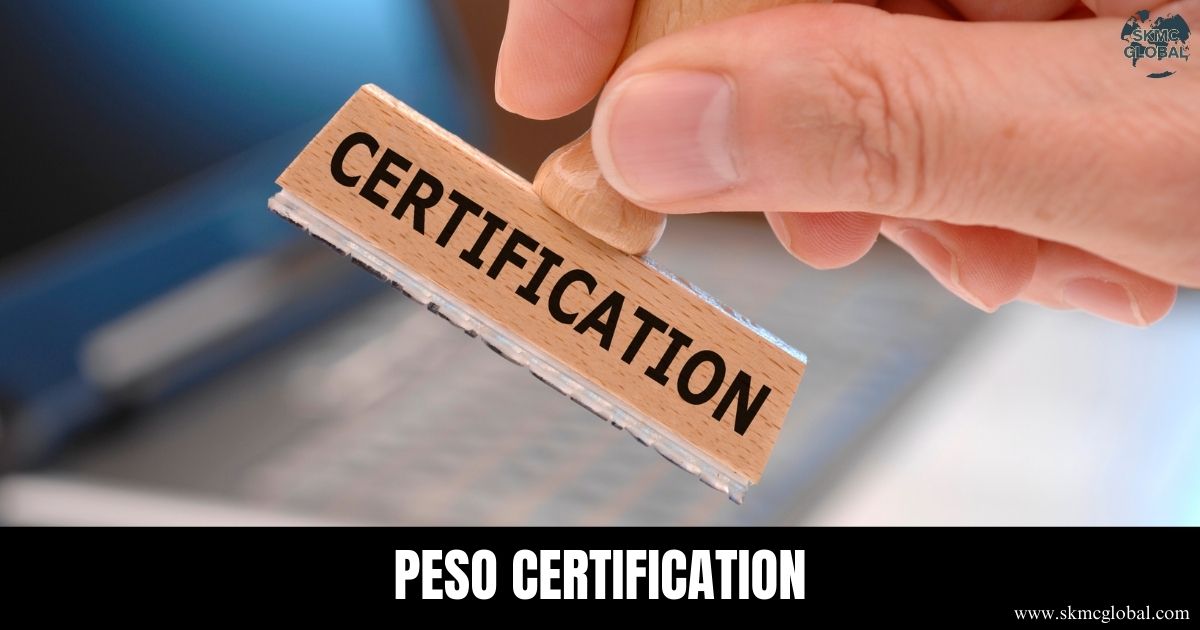 PESO Certification in India...
Nov 26,2025
PESO Certification in India...
Nov 26,2025
-
 Family Trusts for NRIs- Managing Indian Assets fro...
Nov 24,2025
Family Trusts for NRIs- Managing Indian Assets fro...
Nov 24,2025
-
 Decoding Disclosures: Section 184 of Companies Act...
Nov 21,2025
Decoding Disclosures: Section 184 of Companies Act...
Nov 21,2025
-
 All you want to know about Recycling business in I...
Nov 20,2025
All you want to know about Recycling business in I...
Nov 20,2025
-
 What is Seed Fund Scheme and its relevance for Sta...
Nov 19,2025
What is Seed Fund Scheme and its relevance for Sta...
Nov 19,2025
-
 Incorporation of Company in Singapore...
Nov 18,2025
Incorporation of Company in Singapore...
Nov 18,2025
-
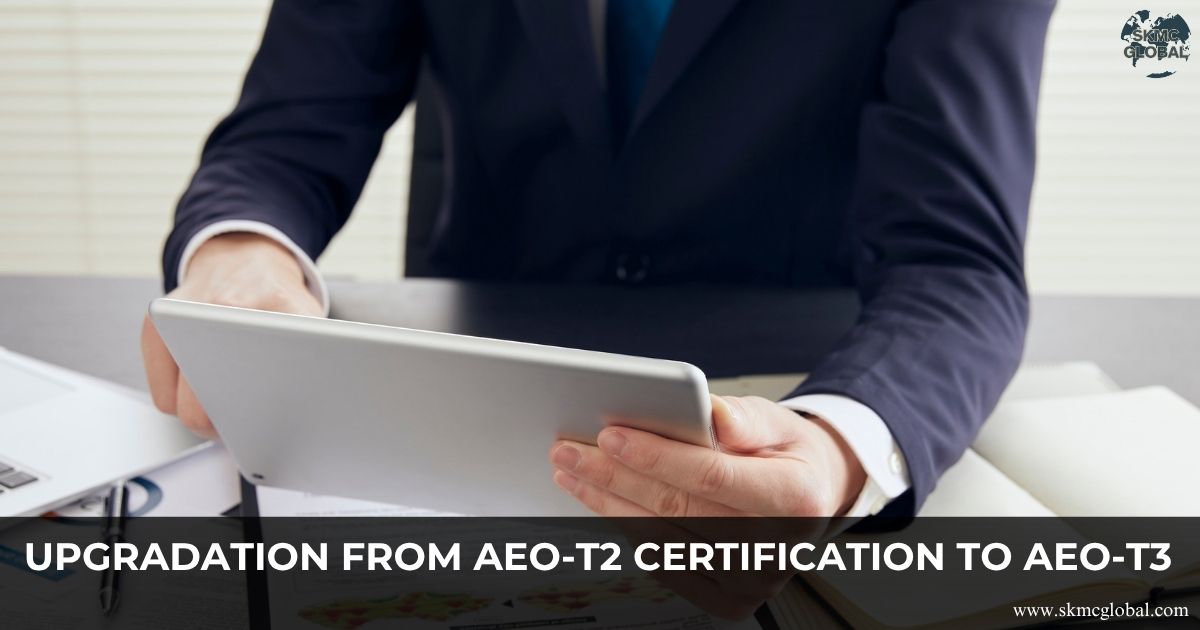 How to upgrade your AEO T2 certification to AEO T3...
Nov 15,2025
How to upgrade your AEO T2 certification to AEO T3...
Nov 15,2025
-
 What is the relevance of APEDA Registration and it...
Nov 14,2025
What is the relevance of APEDA Registration and it...
Nov 14,2025
-
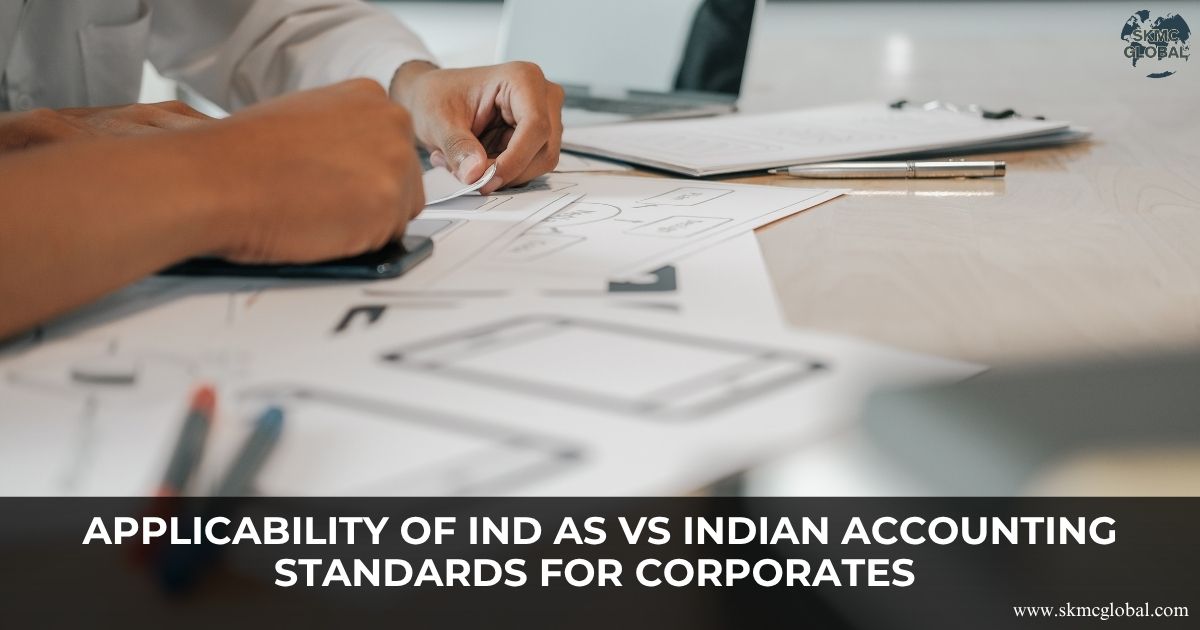 Applicability of Indian Accounting Standards for c...
Nov 11,2025
Applicability of Indian Accounting Standards for c...
Nov 11,2025
-
 Public vs. Private Trust: key Differences in Regis...
Oct 28,2025
Public vs. Private Trust: key Differences in Regis...
Oct 28,2025
-
 Donation and Foreign Contributions to Trusts in In...
Oct 23,2025
Donation and Foreign Contributions to Trusts in In...
Oct 23,2025
-
 Redeemable Preference Shares as a Financial Tool...
Oct 22,2025
Redeemable Preference Shares as a Financial Tool...
Oct 22,2025
-
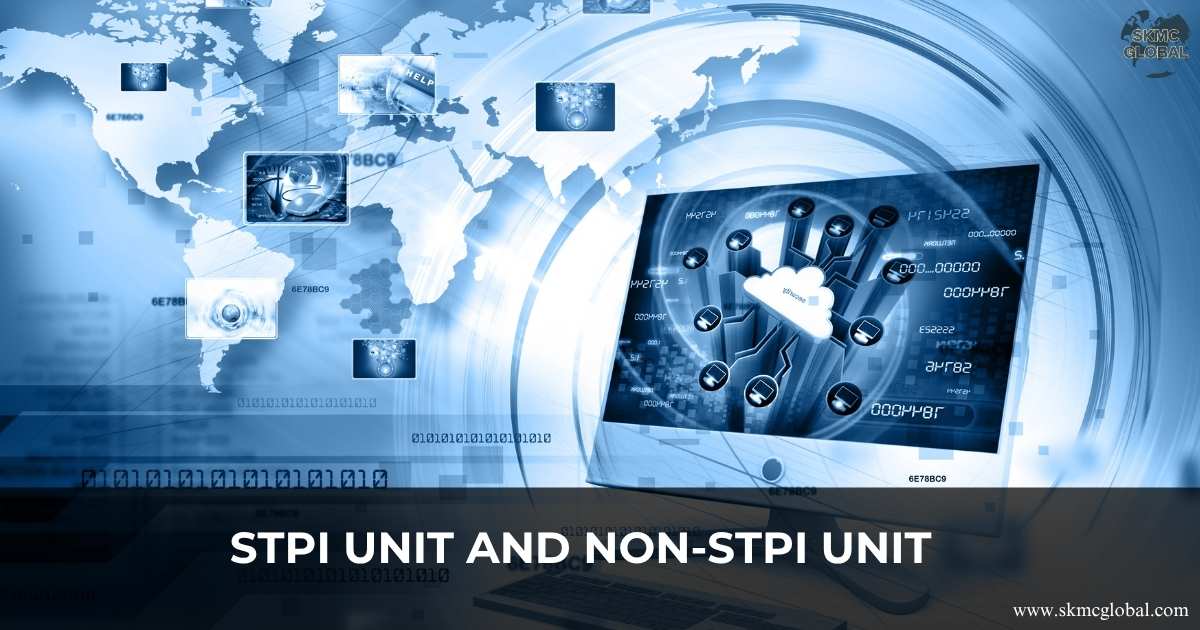 STPI Unit and Non-STPI Unit...
Oct 16,2025
STPI Unit and Non-STPI Unit...
Oct 16,2025
-
 Country-by-Country Reporting (CbCR) and Its Evolvi...
Oct 09,2025
Country-by-Country Reporting (CbCR) and Its Evolvi...
Oct 09,2025
-
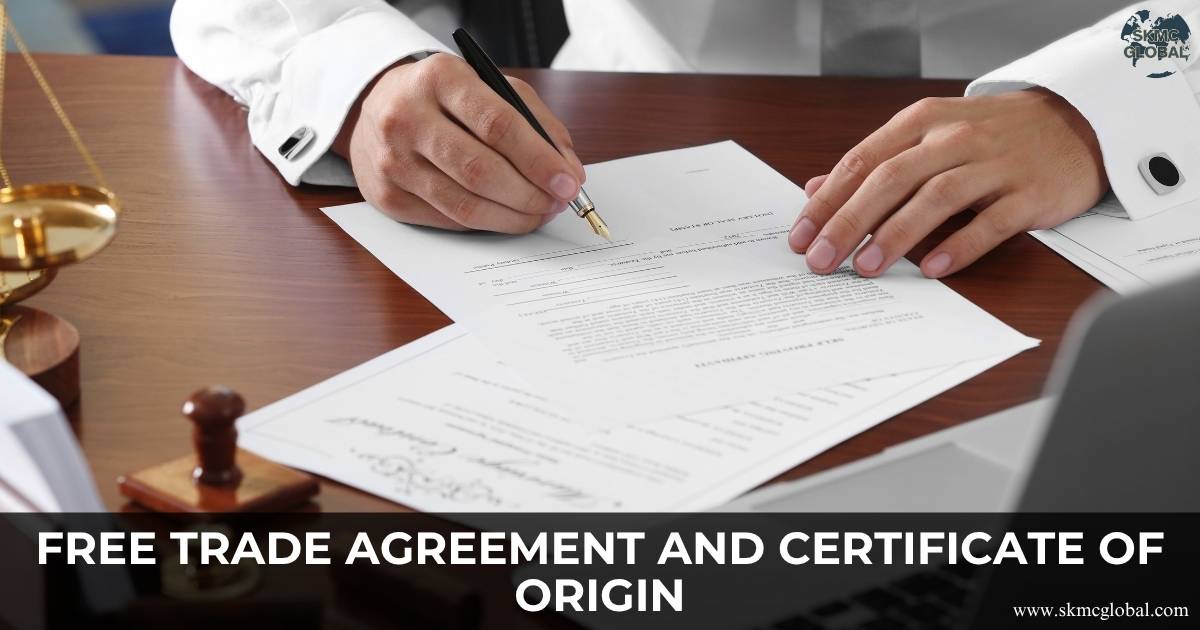 What is Free Trade Agreement and Certificate of Or...
Oct 08,2025
What is Free Trade Agreement and Certificate of Or...
Oct 08,2025
-
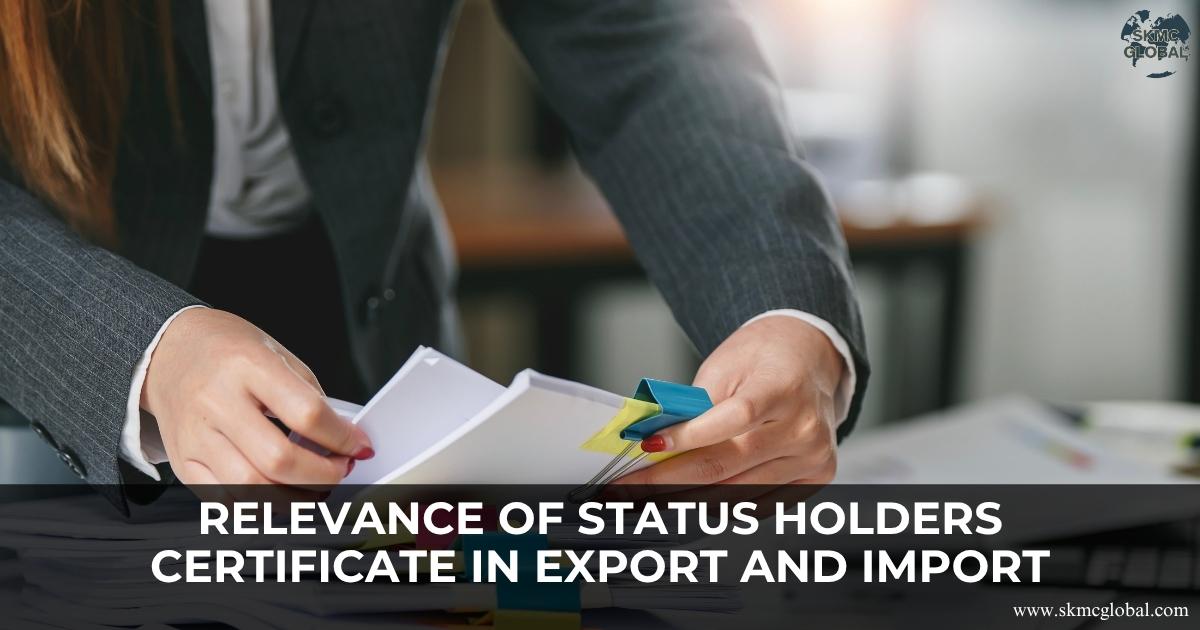 What is the relevance of status holders certificat...
Oct 06,2025
What is the relevance of status holders certificat...
Oct 06,2025
-
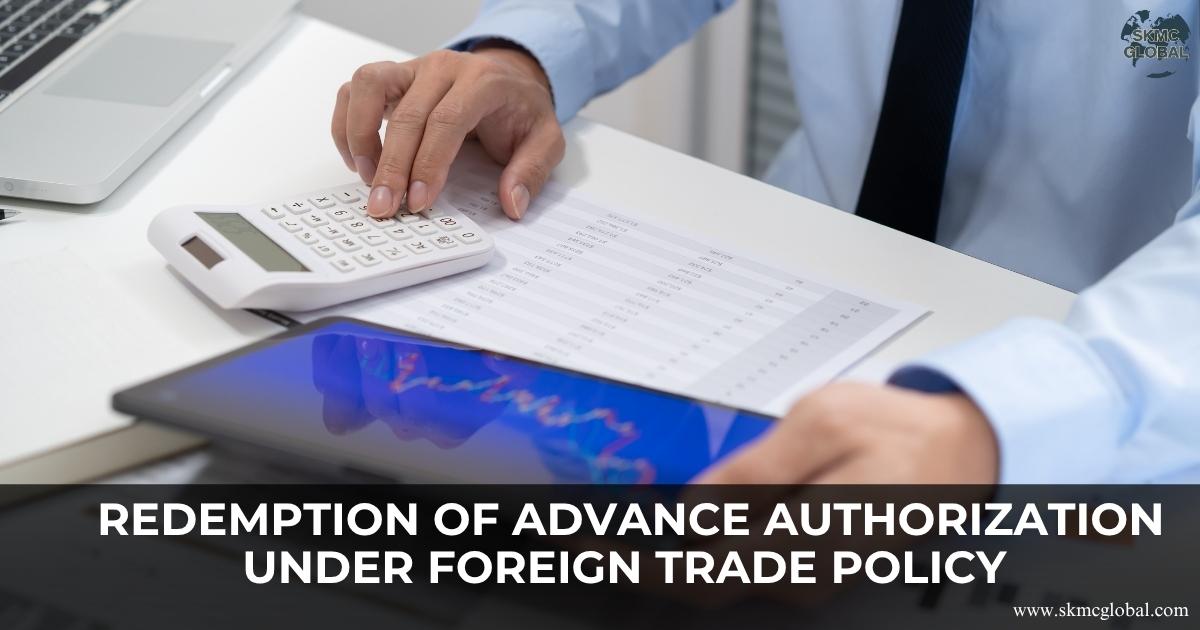 Redemption of Advance Authorization under Foreign ...
Oct 04,2025
Redemption of Advance Authorization under Foreign ...
Oct 04,2025
-
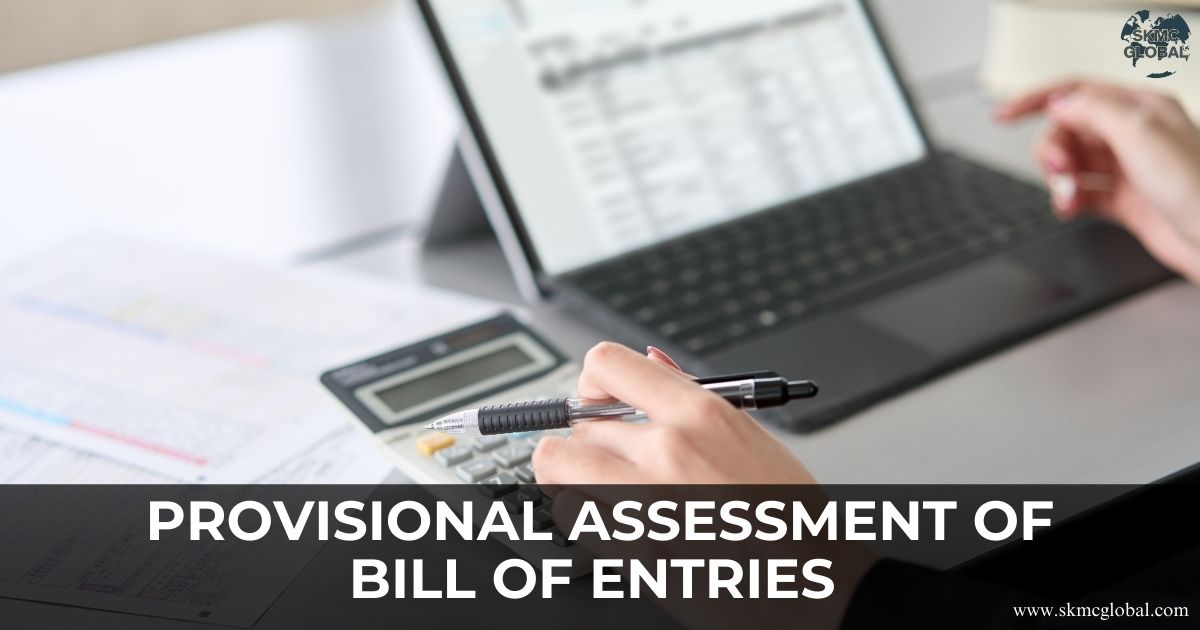 What is provisional assessment of Bill of Entries ...
Sep 29,2025
What is provisional assessment of Bill of Entries ...
Sep 29,2025
-
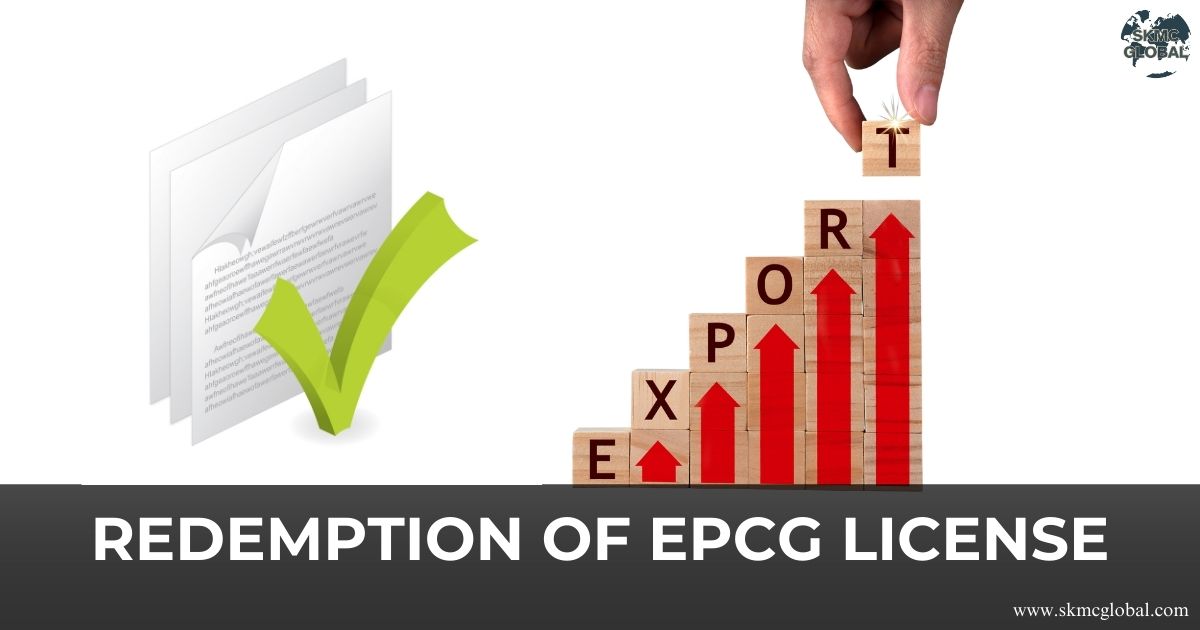 Redemption of EPCG License...
Sep 26,2025
Redemption of EPCG License...
Sep 26,2025
-
 MOOWR (Manufacturing and Other Operations in Wareh...
Sep 24,2025
MOOWR (Manufacturing and Other Operations in Wareh...
Sep 24,2025
-
 Procedure to Apply SCOMET License...
Sep 22,2025
Procedure to Apply SCOMET License...
Sep 22,2025
-
 Landscape of Semiconductor Industry while Doing Bu...
Sep 18,2025
Landscape of Semiconductor Industry while Doing Bu...
Sep 18,2025
-
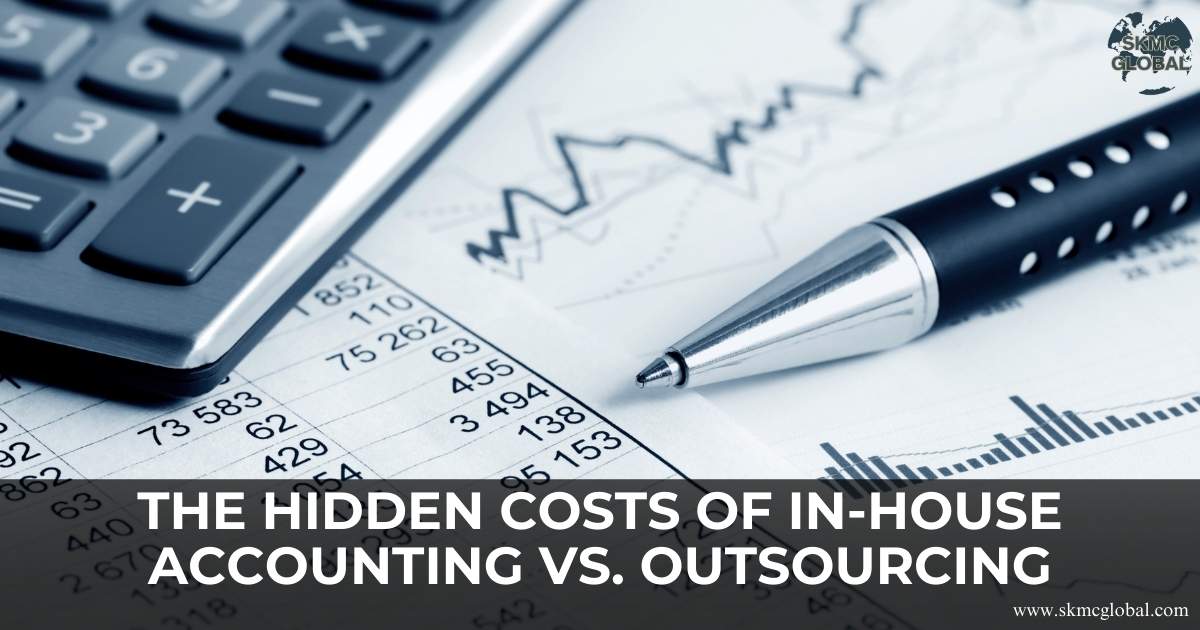 The Hidden Costs of In-House Accounting v/s Outsou...
Sep 17,2025
The Hidden Costs of In-House Accounting v/s Outsou...
Sep 17,2025
-
 TDS on sale of immovable property by an nri...
Sep 10,2025
TDS on sale of immovable property by an nri...
Sep 10,2025
-
 Setting up a Project Office in India...
Sep 08,2025
Setting up a Project Office in India...
Sep 08,2025
-
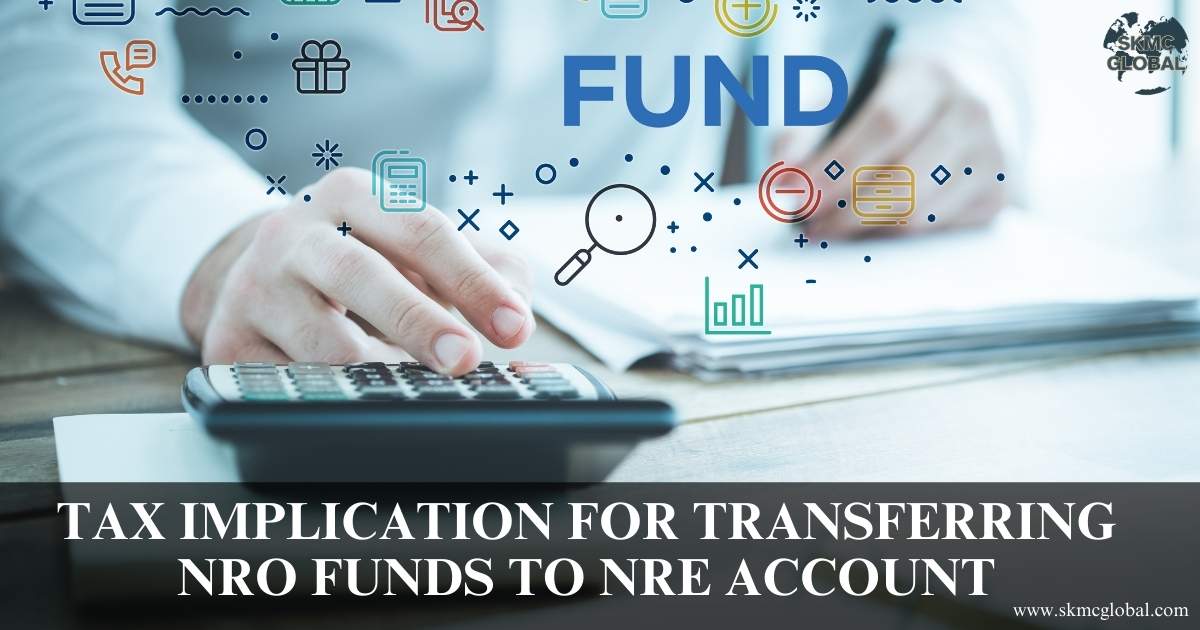 Tax Implication for Transferring NRO Funds to NRE ...
Sep 05,2025
Tax Implication for Transferring NRO Funds to NRE ...
Sep 05,2025
-
 How outsourcing CFO services helps the corporates ...
Aug 27,2025
How outsourcing CFO services helps the corporates ...
Aug 27,2025
-
 Why a Periodical Cash Flow Statement is Necessary ...
Aug 26,2025
Why a Periodical Cash Flow Statement is Necessary ...
Aug 26,2025
-
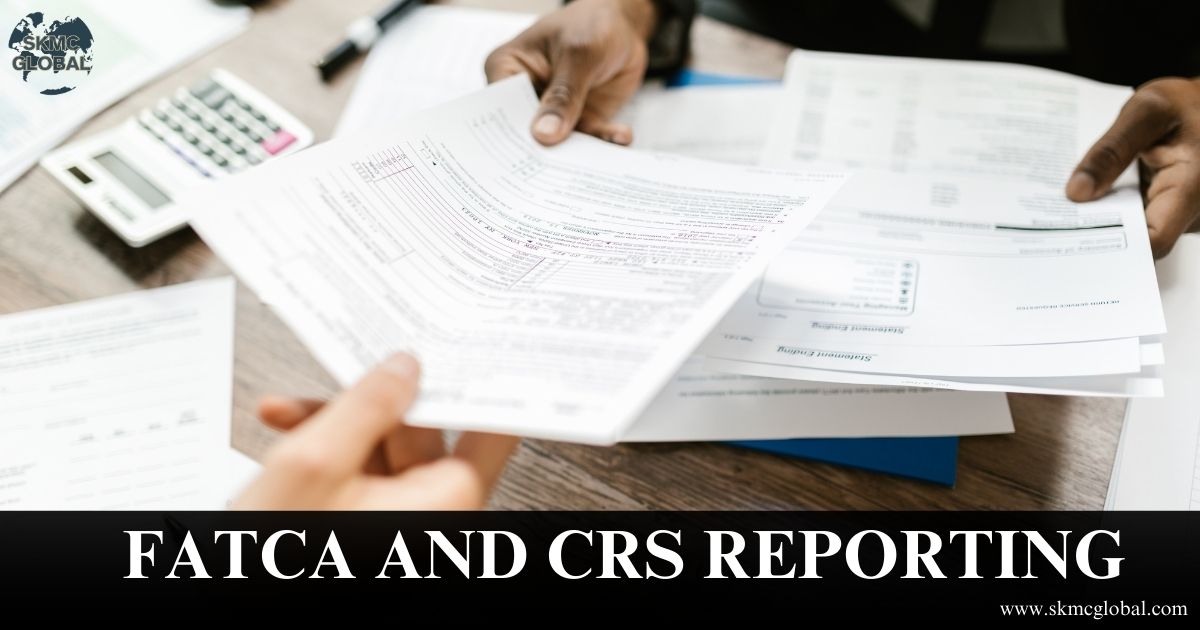 What is FATCA and CRS reporting and its difference...
Aug 22,2025
What is FATCA and CRS reporting and its difference...
Aug 22,2025
-
 What are unclaimed TDS Credits and how to claim it...
Aug 21,2025
What are unclaimed TDS Credits and how to claim it...
Aug 21,2025
-
 Digital Taxation is reshaping Tax Nexus Between Ju...
Aug 20,2025
Digital Taxation is reshaping Tax Nexus Between Ju...
Aug 20,2025
-
 Procedure to Take PF Registration and Its Complian...
Aug 18,2025
Procedure to Take PF Registration and Its Complian...
Aug 18,2025
-
 Procedure to take PSARA License...
Aug 11,2025
Procedure to take PSARA License...
Aug 11,2025
-
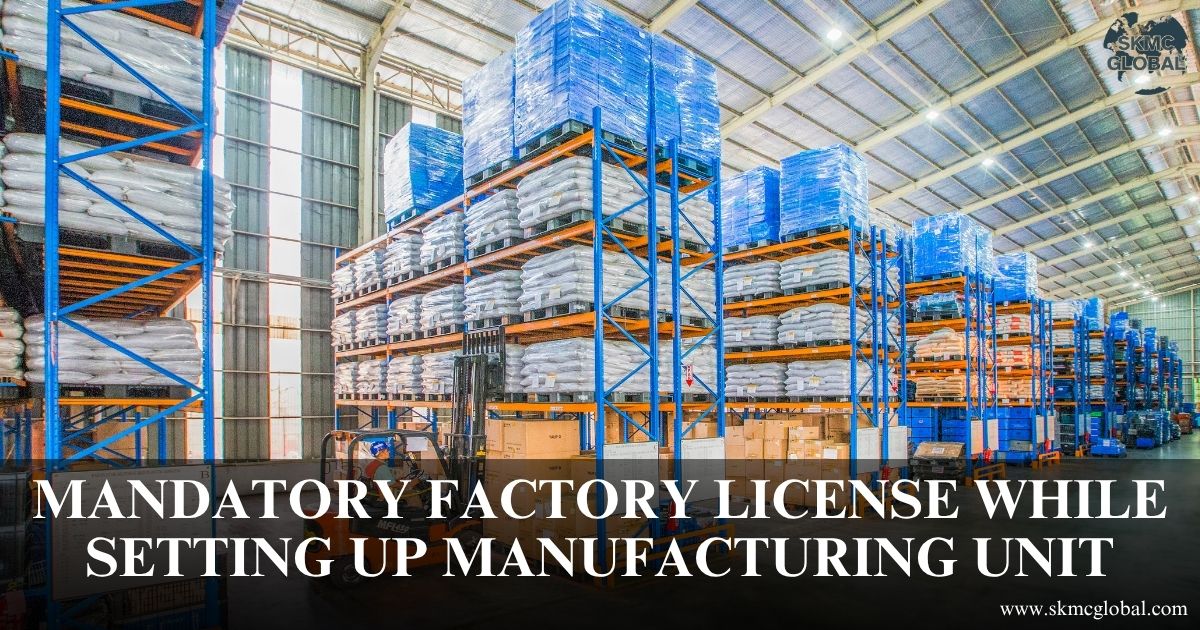 Mandatory factory license while setting up manufac...
Aug 08,2025
Mandatory factory license while setting up manufac...
Aug 08,2025
-
 Procedure for obtaining NBFC Registration in India...
Aug 04,2025
Procedure for obtaining NBFC Registration in India...
Aug 04,2025
-
 FSSAI License registration for Food Business...
Jul 14,2025
FSSAI License registration for Food Business...
Jul 14,2025
-
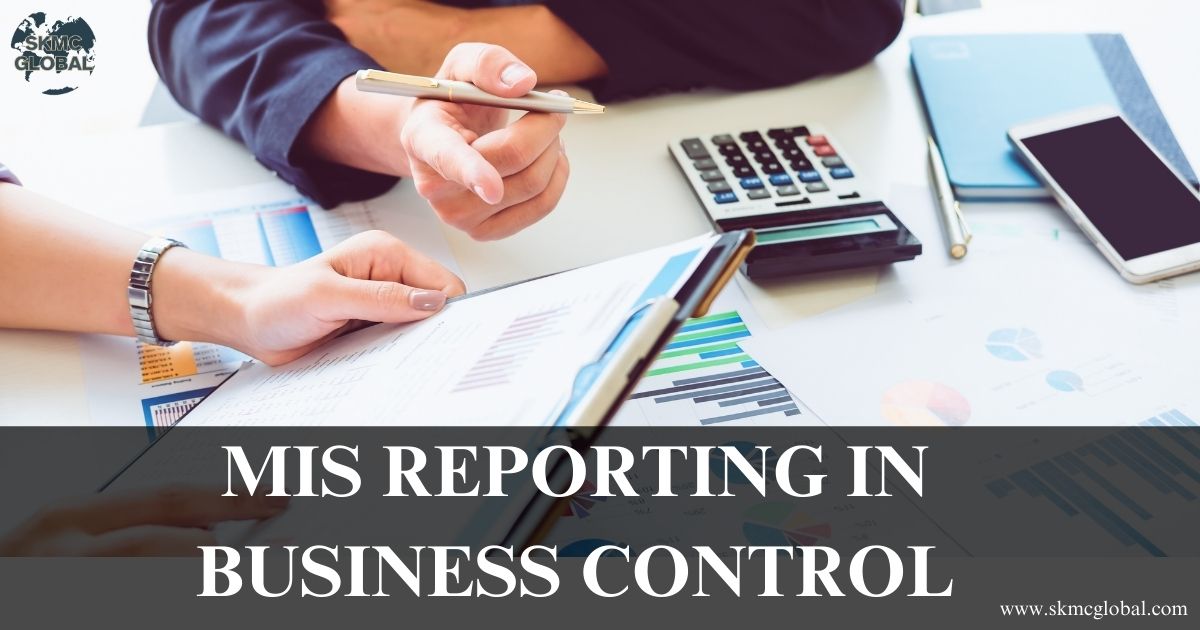 How Management Information System (MIS) reporting ...
Jul 11,2025
How Management Information System (MIS) reporting ...
Jul 11,2025
-
 IFRS 9 impairment- A complete guide...
Jul 12,2025
IFRS 9 impairment- A complete guide...
Jul 12,2025
-
 Why most of the companies are shifting to hr and p...
Jul 10,2025
Why most of the companies are shifting to hr and p...
Jul 10,2025
-
 A complete guide on valuation of shares...
Jul 10,2025
A complete guide on valuation of shares...
Jul 10,2025
-
 BIS registration for foreign manufacturer...
Jul 09,2025
BIS registration for foreign manufacturer...
Jul 09,2025
-
 Understanding the Scope of the Shops and Establish...
Jul 08,2025
Understanding the Scope of the Shops and Establish...
Jul 08,2025
-
 Coso framework: Complete guide on internal control...
Jun 26,2025
Coso framework: Complete guide on internal control...
Jun 26,2025
-
 Components and Process for Conducting Internal Aud...
Jun 25,2025
Components and Process for Conducting Internal Aud...
Jun 25,2025
-
 What is ICFR and Why It is Important for Businesse...
Jun 24,2025
What is ICFR and Why It is Important for Businesse...
Jun 24,2025
-
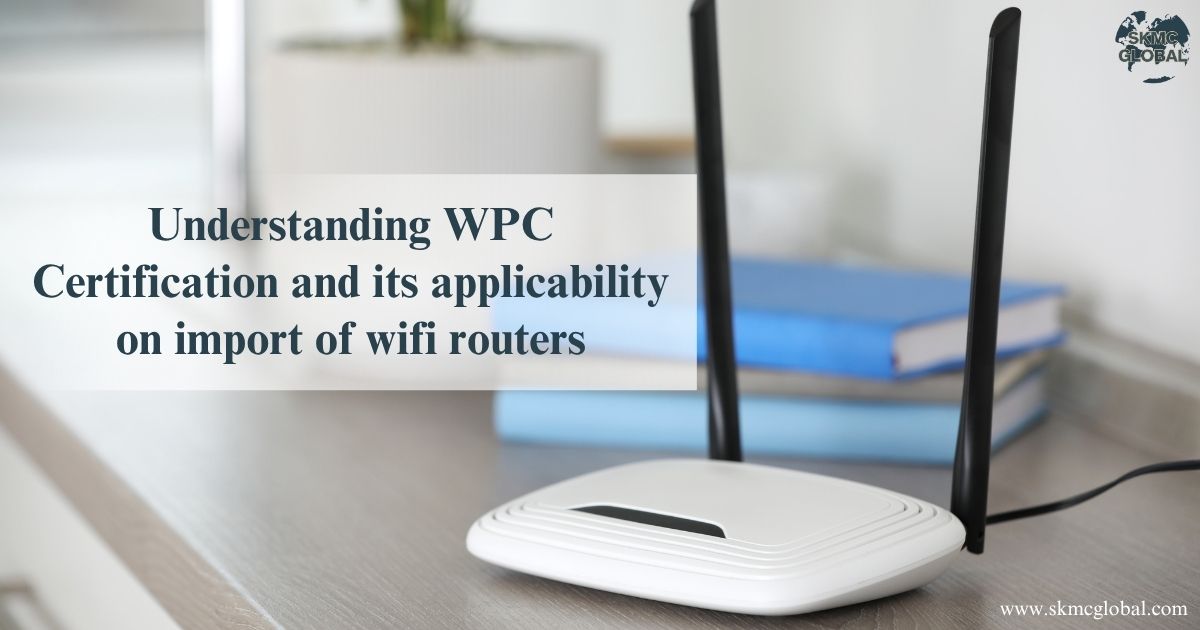 Understanding WPC Certification and its applicabil...
Jun 23,2025
Understanding WPC Certification and its applicabil...
Jun 23,2025
-
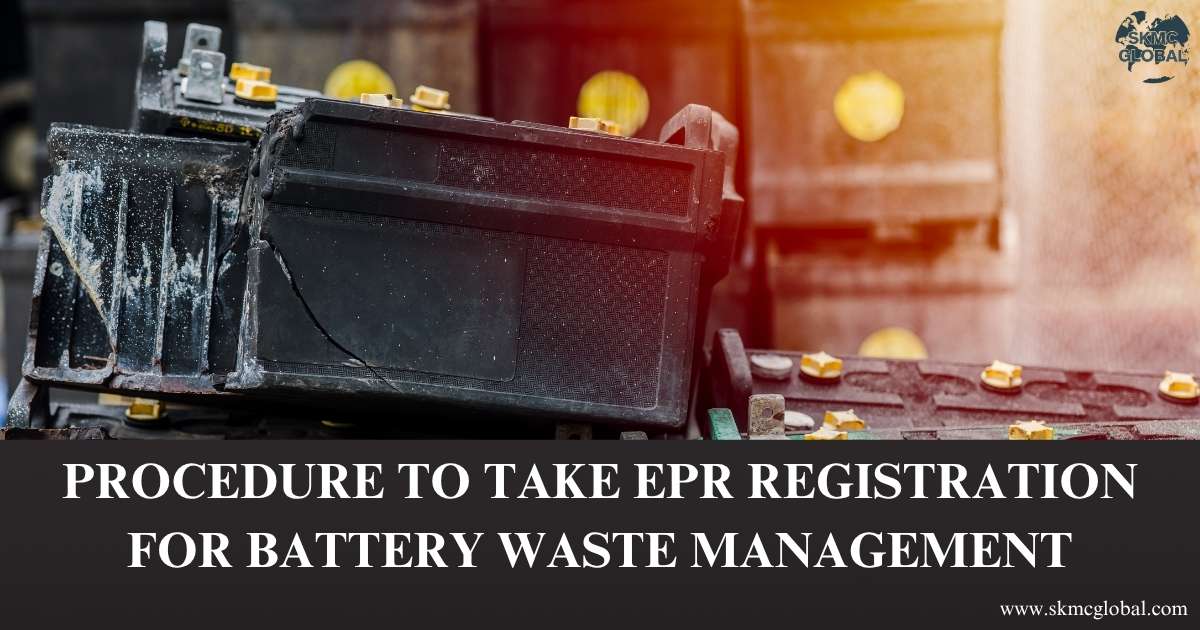 Procedure to take EPR registration for battery was...
Jun 21,2025
Procedure to take EPR registration for battery was...
Jun 21,2025
-
 3PL Logistics...
Jun 19,2025
3PL Logistics...
Jun 19,2025
-
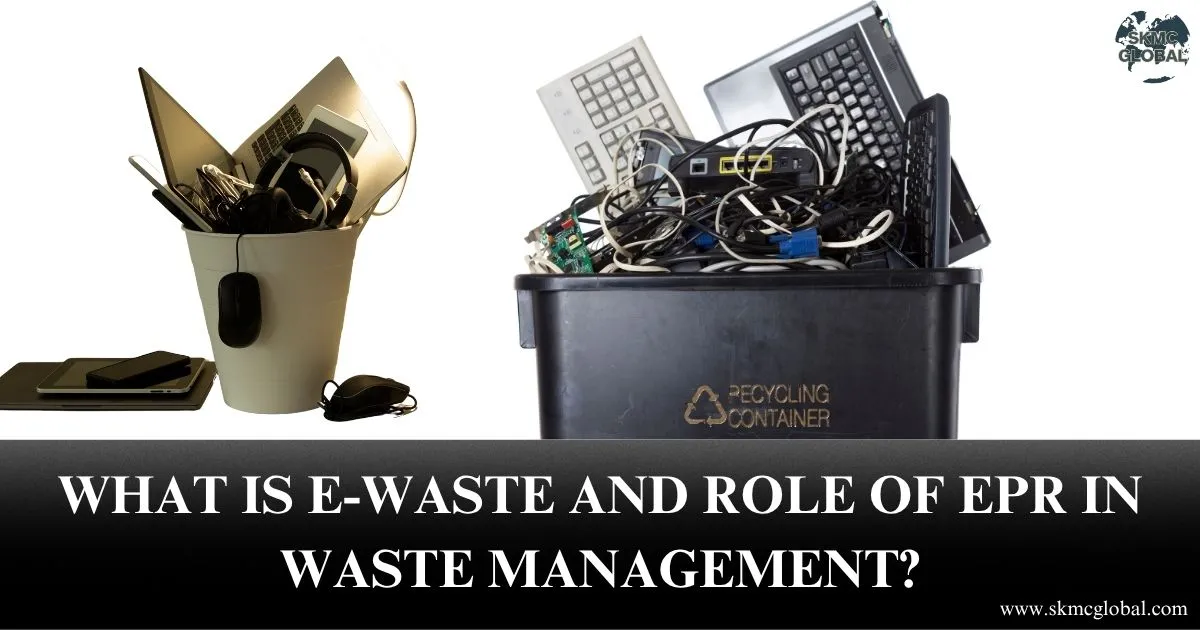 What is E-Waste and role of EPR in Waste Managemen...
Jun 17,2025
What is E-Waste and role of EPR in Waste Managemen...
Jun 17,2025
-
 M&A Due Diligence in India: How to Spot Target Com...
Jun 16,2025
M&A Due Diligence in India: How to Spot Target Com...
Jun 16,2025
-
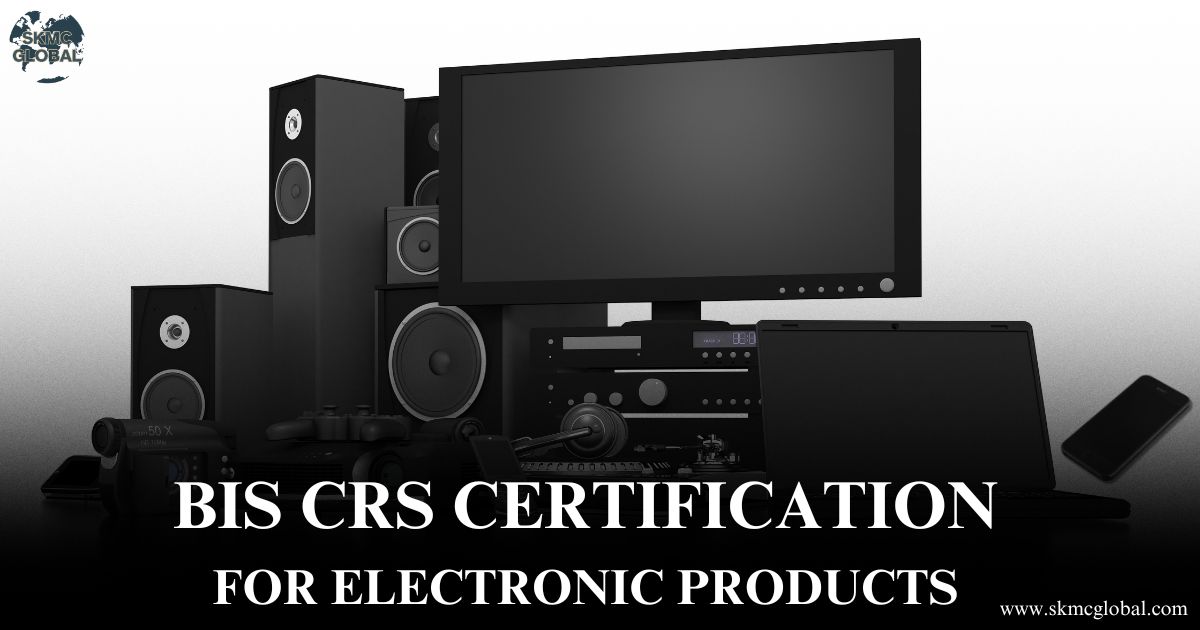 BIS crs certification for electronic products...
Jun 12,2025
BIS crs certification for electronic products...
Jun 12,2025
-
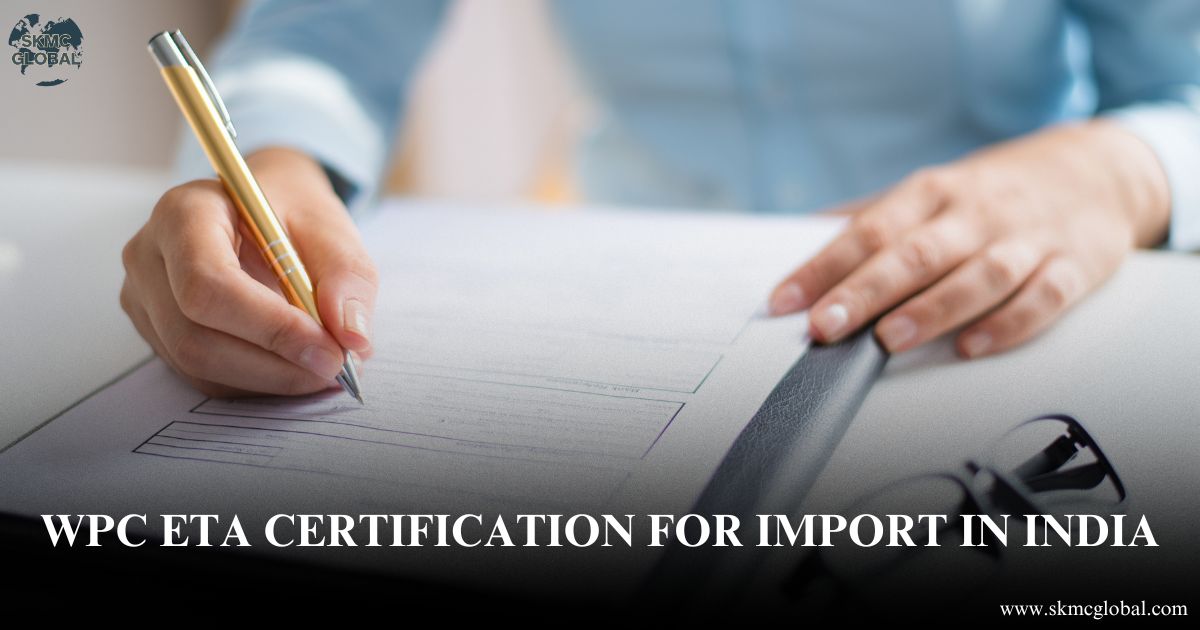 All you need to know about WPC ETA certification f...
Jun 11,2025
All you need to know about WPC ETA certification f...
Jun 11,2025
-
 What is CDSCO Registration under The Drugs & Cosme...
Jun 10,2025
What is CDSCO Registration under The Drugs & Cosme...
Jun 10,2025
-
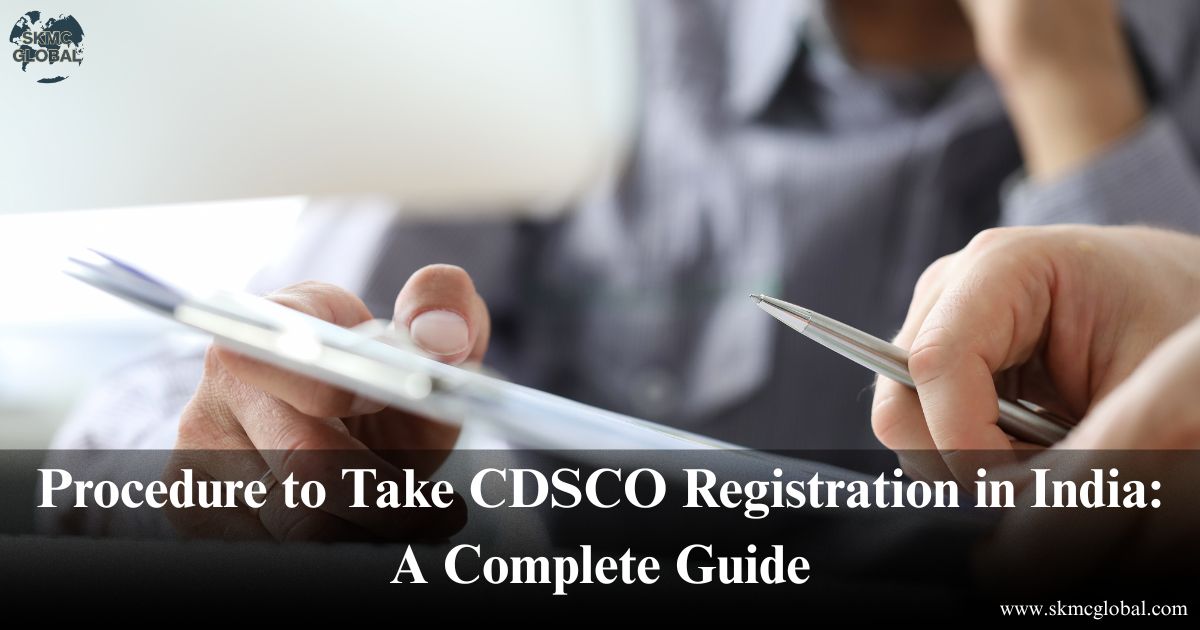 Procedure to Take CDSCO Registration in India: A C...
Jun 09,2025
Procedure to Take CDSCO Registration in India: A C...
Jun 09,2025
-
 All You Need to Know About AERB Registration...
Jun 07,2025
All You Need to Know About AERB Registration...
Jun 07,2025
-
 Understanding POSH (Prevention of Sexual Harassmen...
Jun 03,2025
Understanding POSH (Prevention of Sexual Harassmen...
Jun 03,2025
-
 Chartered Accountant's role in financial managemen...
May 23,2025
Chartered Accountant's role in financial managemen...
May 23,2025
-
 5 Things to keep in your mind while running payrol...
May 17,2025
5 Things to keep in your mind while running payrol...
May 17,2025
-
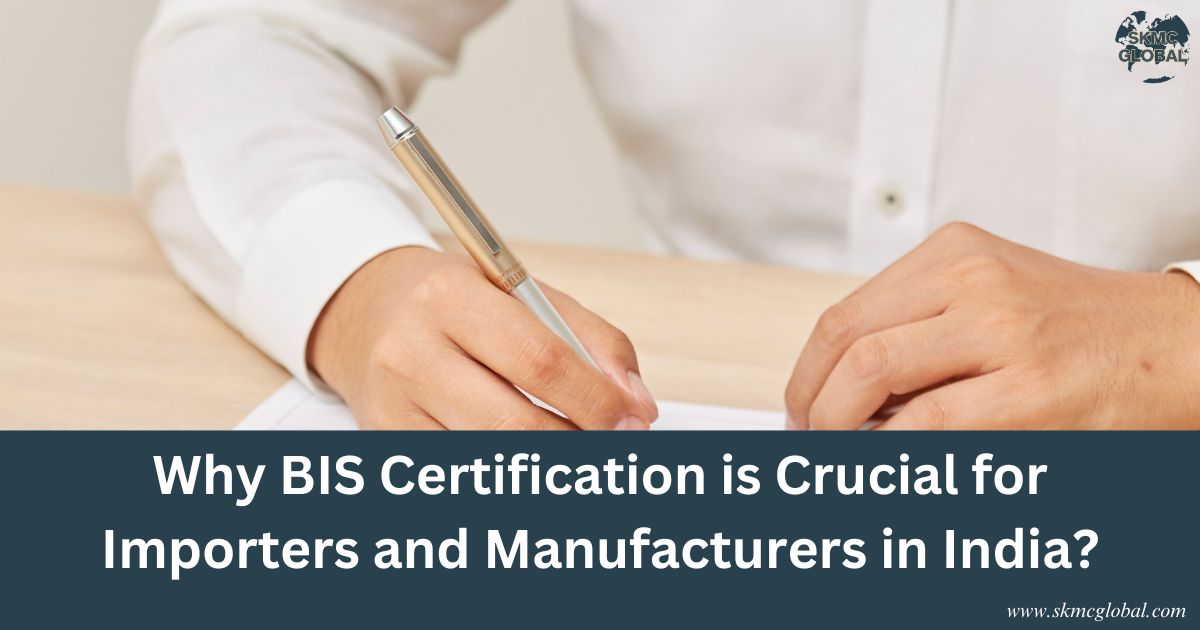 Why BIS Certification is Crucial for Importers and...
May 15,2025
Why BIS Certification is Crucial for Importers and...
May 15,2025
-
 Top 7 Reasons Indian Entrepreneurs Are Switching t...
May 07,2025
Top 7 Reasons Indian Entrepreneurs Are Switching t...
May 07,2025
-
 Incorporation of Company in Japan...
Apr 24,2025
Incorporation of Company in Japan...
Apr 24,2025
-
 How to set up a Representative Office in Singapore...
Apr 14,2025
How to set up a Representative Office in Singapore...
Apr 14,2025
-
 BIS certificate for medical equipments...
Apr 09,2025
BIS certificate for medical equipments...
Apr 09,2025
-
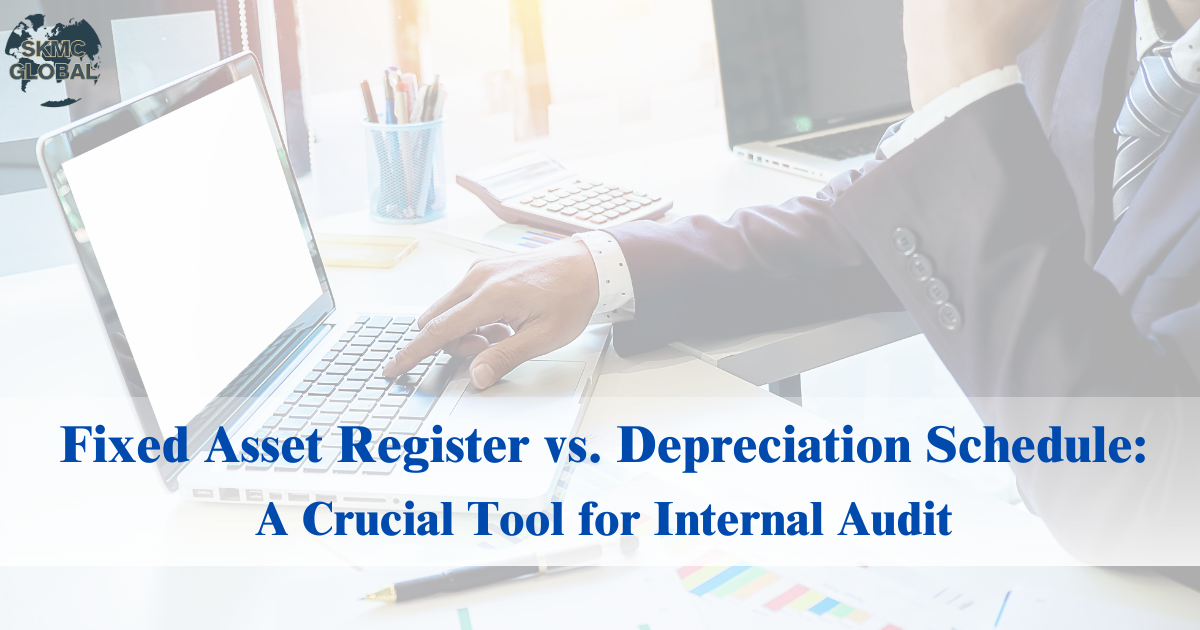 Fixed Asset Register v/s Depreciation Schedule: A ...
Apr 02,2025
Fixed Asset Register v/s Depreciation Schedule: A ...
Apr 02,2025
-
 Role of AI in Accounting...
Mar 26,2025
Role of AI in Accounting...
Mar 26,2025
-
 Capital Structure & its Impact on Profitability...
Feb 21,2025
Capital Structure & its Impact on Profitability...
Feb 21,2025
-
 Union Budget 2025...
Feb 01,2025
Union Budget 2025...
Feb 01,2025
-
 What is EPR in Plastic waste Management? ...
Jul 12,2022
What is EPR in Plastic waste Management? ...
Jul 12,2022
-
 Lithium-ion Battery Recycling Plant Setup in India...
May 10,2022
Lithium-ion Battery Recycling Plant Setup in India...
May 10,2022
-
 Setting up E-waste Recycling Plant Setup...
Jan 12,2022
Setting up E-waste Recycling Plant Setup...
Jan 12,2022
-
 Applicability of Labour Laws in India...
Jul 15,2021
Applicability of Labour Laws in India...
Jul 15,2021
-
 Basis to Outsource Finance and Accounting Services...
Oct 31,2021
Basis to Outsource Finance and Accounting Services...
Oct 31,2021
